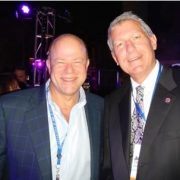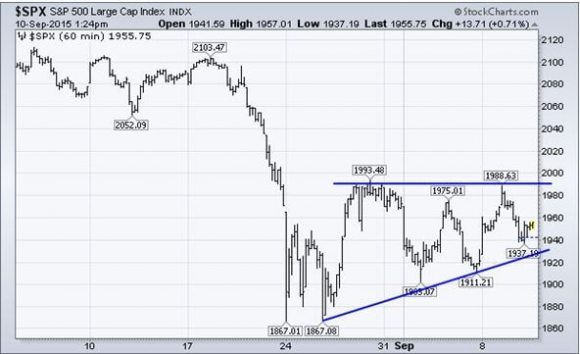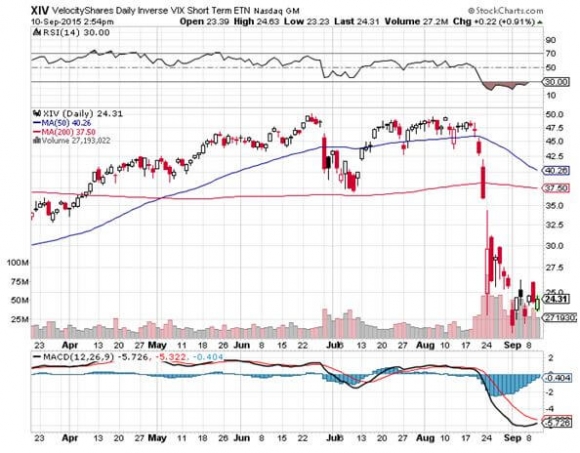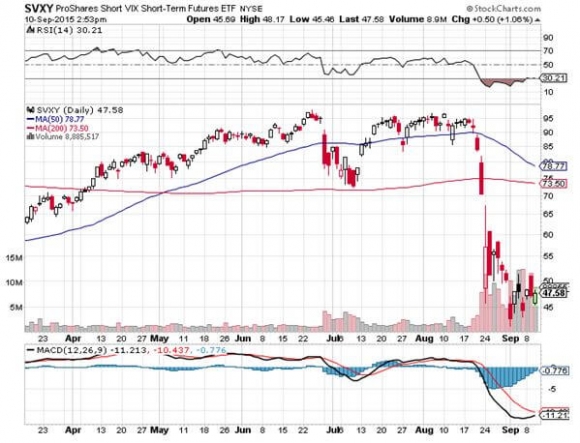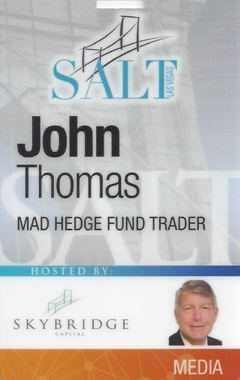Catching Up With David Tepper
?Flat stocks is not a bad place to be right now,? said my friend, hedge fund legend David Tepper of Appaloosa Management LP.
Those of a certain age will remember a TV commercial that instructed us that ?When EF Hutton talks, people listen.
Today, they should be listening to Tepper.
David argues that river of liquidity that has been a tailwind for stocks for the past 17 years may be about to end, or it may not.
Until David figures out this conundrum, he?ll feel safer watching the equity markets from the sidelines. Tepper is presently carrying an unusual amount of cash on his books right now.
So am I.
The S&P 500 peaked at an earnings multiple of 18 earlier this year when it tickled $2,014, bang on his forecast.
It now trades at 16 multiple. If you assume that (SPX) earnings will come in at $118 a share, that puts a fair value for the index of $1,888, or spitting distance from the current level.
If you take that 16 multiple into next year, and figure in a (SPX) earnings figure of $125/share, that takes the index up to 2,000. Not much, but better than a poke in the eye with a sharp stick.
The problem is with the earnings numbers. As we approach the 4% handle for the headline unemployment rate, wages have to rise. That will cut corporate margins, which are currently peaking.
This means we currently have one of the greatest stock picking markets of all time. Some stocks are clearly overvalued, while others are OK.
That is were I come in. I have found that focusing the half dozen winners is the perfect way to play these tempestuous markets.
The problem is that there is a lot of risk in the markets now, a point I have been vociferously arguing for the past four months. Almost every Trade Alert I have send out since April on the (SPY) has been from the short side.
Stocks here are either fairly valued, or slightly expensive. But there is no safety cushion. If the mass refugee problem causes Europe to blow up, or if China is worse than we think, then there could be trouble.
The earnings multiple could drop to 14-15 in a heartbeat, knocking another 10% off of stocks.
It is clearly not ?bet the ranch? time for equities.
Even long-term investors should be raising a little bit of cash here, paring their most expensive, highest beta holdings. That said, stockowners with a four-year time horizon will be alright.
While all eyes are on the Federal Reserve decision next week, 25 basis points are neither here nor there for the almighty US economy. The larger impact of the Fed move will be felt in the foreign exchange markets.
The ?river? David is talking about is the accumulation of assets by international entities on multiple fronts.
Chinese and other emerging market reserves rocketed. Saudi oil profits ballooned. US companies managed to sock away $2 trillion in foreign profits.
Quantitative easing by the US, Japan, Europe, and China added fuel to the fire. All told, some $11 trillion in cash was created. In these circumstances, you buy every dip in risk assets, which David has been doing for nearly two decades.
This initial move for most of these assets was into the global bond markets, which is why interest have been falling for 30 years to absurdly low levels.
Now a chink is appearing in this argument, with the end of QE in the US and the de facto tightening it has brought.
Suddenly, the flow of money in this river has changed from one-way to mixed. This uncertainty and confusion is giving us our current round of volatility. In this environment, you buy every dip in volatility and sell every rally.
I have been doing the same through the Velocity Shares Daily Inverse VIX Short Term ETN (XIV) and the ProShares Short VIX Short Term Futures ETN (SVXY).
Tepper is the best trader our generation, bar none. If you gave him $1 million when he started Appaloosa Management LP in 1993, it would be worth a staggering $149 million today.
Managing $20 billion in assets with a staff of only 33, David earned a personal paycheck of $3.5 billion last year, one of the largest in history. He was worth every penny.
His rise from a gritty inner city high school in Pittsburgh is now part of Wall Street lore. It is a classic American bootstrap story. He moved on to University of Pittsburgh and Carnegie Mellon University for graduate school.
He spent two years battling to keep a dying Republic Steel alive with innovative refinancings, even though he was hit with a 10% pay cut six weeks into the job.
That led to a gig as a junk bond analyst at Keystone Mutual Funds (now part of Evergreen Funds), and finally a coveted job at Goldman Sachs.
A mere six months after joining the firm, he was promoted head of convertible bond trading. He quickly became known as an iconoclast and innovator, gaining a loyal following of fans, first inside Goldman, and then throughout the industry at large.
I was one of those early acolytes, trading against him from the convertible bond desk at Morgan Stanley.
Tepper dispelled a myth that he named his firm ?Appaloosa? because he liked to eat horsemeat.
In those primordial days, brokerage research was distributed by fax machines. Firms starting with the letter ?A? got the news up to 20 minutes earlier than competitors.
Hey, anything to get an edge.
David suffered three 20% drawdowns during his career, once during the Russian debt default in 1998 and again in the 2008 crash. Each one was a sobering and humbling experience.
Today has returned profits to his clients that are double their original investment.
That means they are now playing with the ?house?s money.? This has lifted a great psychological burden from David?s shoulders, cleared his mind and given him freedom. It is now impossible for his customers to lose money.
Tepper currently turns new money away and has closed some of his peripheral funds to concentrate his focus. He keeps working not to collect more assets, but for the love of the game.
David isn?t just sitting on his cash, he is giving great chunks of it away. In 2003, he gave $55 million to his alma mater, now called the Carnegie Mellon David A. Tepper School of Business.
Last year, he wrote another check to the school for $67 million. He has been active in Paul Tudor Jones? Robin Hood Foundation.
When the super storm Hurricane Sandy devastated the east coast in 2012, he topped up many New Jersey charities that had been drained by the financial crisis.
Since then, Tepper has been able to deliver his best performance ever. Does he believe in karma? David pointed to himself with both hands in a big, bold flourish and said, ?This is karma!?
Asked if he had any advice for aspiring young hedge funds traders, he furrowed his brow and thought for a moment. ?The worse things are, the better they will get. When they are awful, it is a great time to buy.?
So true, so true.
Good for you, David Tepper.

